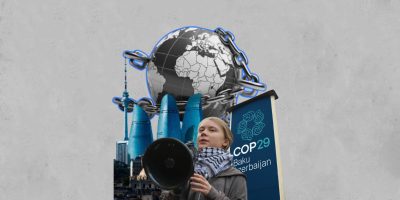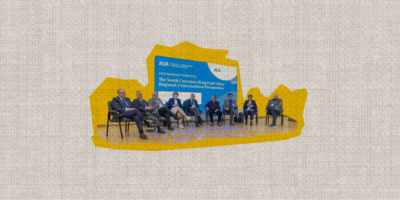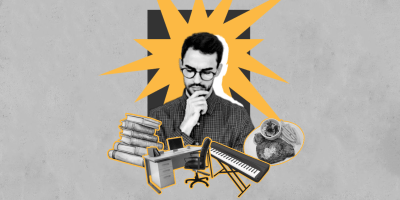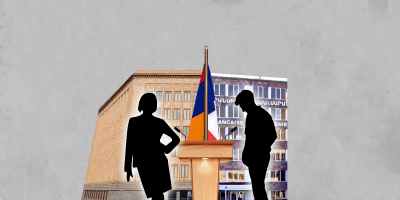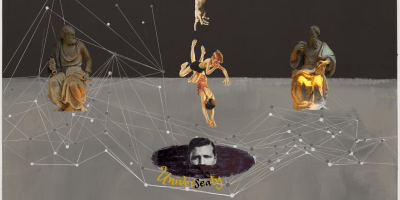
On Sept. 18, Canada’s Ambassador to Armenia, Andrew Turner, reaffirmed his country’s commitment to supporting Armenia’s sovereignty, democratic reforms and the strengthening of democratic institutions during a lecture at AUA.
The event, hosted by the Master’s Program in International Relations and Diplomacy (MAIRD), opened with remarks from Dr. Jean-François Caron, interim chair of the MPA and MAIRD programs, who welcomed the ambassador and set the stage for a wide-ranging discussion on democracy, sovereignty and international partnerships.
Drawing on his 23 years in foreign service, Turner began by reflecting on the importance of a rules-based international order. He spoke about the historical emergence of democracy, the inequalities that still mark global politics and the challenges of managing limited resources in a competitive international environment.
From there, he turned to Armenia, describing the decision to open a Canadian embassy in Yerevan in October 2023 as a deliberate signal of Canada’s intent to deepen its engagement.
He emphasized that Canada’s presence goes beyond symbolism. They have visited Jermuk, Tavush and Syunik, meeting with local communities and Nagorno-Karabakh refugees. Canada joined the EU border-monitoring mission in Armenia and is the first non-European state in this position.
Canada has also partnered with the United Nations and the Organization for Security and Co-operation in Europe (OSCE) on initiatives to preserve cultural heritage, while drawing on the support of Armenian Canadians who have long contributed to humanitarian programs, charitable foundations and refugee assistance.
One of the key responsibilities of foreign missions, Turner explained, is to ensure that tense times do not lead to bigger conflict. But Canada’s most important objective in Armenia, he stressed, is supporting democratic reform. He described this as central to preventing democratic backsliding and ensuring that Armenia’s still young democracy continues to strengthen.
Examples of Canadian assistance include technical guidance for National Assembly staff, small grants for local initiatives and professional exchanges with Armenian judges, particularly in the area of sentencing for petty crimes.
Turner elaborated on Canada’s approach to sustaining reform in Armenia while respecting its local context. He notes that Armenians need to make decisions for their future on their own. Meanwhile, Canada can help with sharing its proficiency and support to reform in all work with the government, opposition and civil society.
Speaking directly to students, Turner highlighted Canada’s recent steps towards improving the partnership with Armenia. Cooperation between the two countries has potential to increase. Armenia and Canada will remain a steady partner for Armenia.
The ambassador’s visit to AUA was both symbolic and practical: symbolic in its reaffirmation of Canada’s support for Armenia’s sovereignty and territorial integrity, and practical in its emphasis on reforms, technical cooperation, and the role of youth in democratic development. For the students in attendance, it offered a glimpse not only into Canadian diplomacy but also into how global partnerships can influence Armenia’s democratic future.

